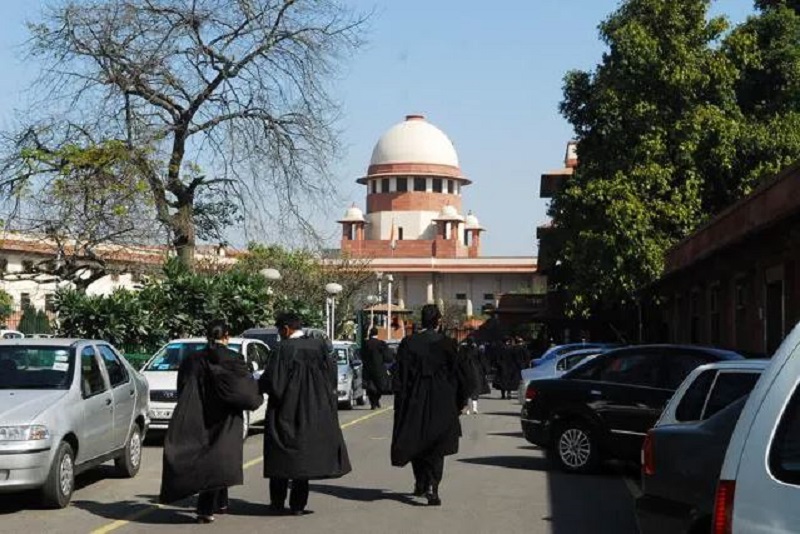 English
English

The Supreme Court on Wednesday said the Constitution intended to bring about a “sense of social transformation” and it would be “dangerous” to say that the private property of an individual cannot be regarded as material resource of the community and taken over by state authorities to subserve “common good”. Read further on Dynamite News:

New Delhi: The Supreme Court on Wednesday said the Constitution intended to bring about a "sense of social transformation" and it would be "dangerous" to say that the private property of an individual cannot be regarded as material resource of the community and taken over by state authorities to subserve "common good".
The observations were made by a nine-judge bench headed by Chief Justice D Y Chandrachud, examining whether privately-owned resources can be considered "material resources of the community" after Property Owners Association (POA) of Mumbai made strong submissions that private properties cannot be taken over by state authorities under the garb of constitutional schemes of Articles 39 (b) and 31 C of the Constitution.
"It may be a little extreme to suggest that 'material resources of the community' only means public resources, and we do not have their origin in the private property of an individual. I will tell you why it would be dangerous to take that view.
"Take simple things like mines and even private forests. For instance, for us to say that the governmental policy will not apply to private forests under Article 39 (b)... therefore keep hands off.
It will be extremely dangerous as a proposition," said the bench which also comprised justices Hrishikesh Roy, B V Nagarathna, Sudhanshu Dhulia, J B Pardiwala, Manoj Misra, Rajesh Bindal, Satish Chandra Sharma and Augustine George Masih.
Referring to social and other prevalent situations in the 1950s when the Constitution was made, the bench said, "The Constitution was intended to bring about social transformation, and we cannot say that Article 39 (b) has no application once property is privately held."
The Maharashtra law, empowering authorities to take over dilapidated buildings, is valid or not, is a completely different issue and should be decided independently, it said.
The bench asked, can it be said Article 39 (b) will have no application once properties are privately held because society demands welfare measures and there is a need for redistribution of wealth as well.
The CJI referred to the abolition of 'Zamindari' and the purely capitalist concept of property and said it attributed a sense of "exclusiveness" to property.
The case is about acquiring property under certain defined conditions, and has nothing to do with redistribution.
"The socialist concept of property is the mirror image which attributes to property, a notion of commonality. Nothing is exclusive to the individual. All property is common to the community. That's the extreme socialist view," the CJI said, adding that the DPSPs have their foundation in the Gandhian ethos.
"And what is that ethos? Our ethos regards property as something which we hold in trust. We don't go as far as to adopt the socialistic model that there is no private property...
"But, you know, our concept of property has undergone a very different, very subtle change from either the extreme capitalist perspective or the extreme socialist perspective," Justice Chandrachud said.
He said we regard property as something to hold in trust. "We hold the property because of the succeeding generations in the family, but broadly, we also hold that property in trust for the wider community. That's the whole concept of sustainable development.
"That property which we have today, as today's generation, we hold in trust for the future of our society. That's what you call an inter-generational equity," the bench said.
It also observed that there was no need to distribute private properties, which have been considered as material resources of the community and gave the instance of nationalisation of private assets.
"You must understand that Article 39 (b) has been crafted in a certain way in the Constitution because the Constitution was intended to bring about a social transformation. We shouldn't therefore go that far to say that the moment private property is private property, Article 39 (b) will have no application," the CJI said. (PTI)